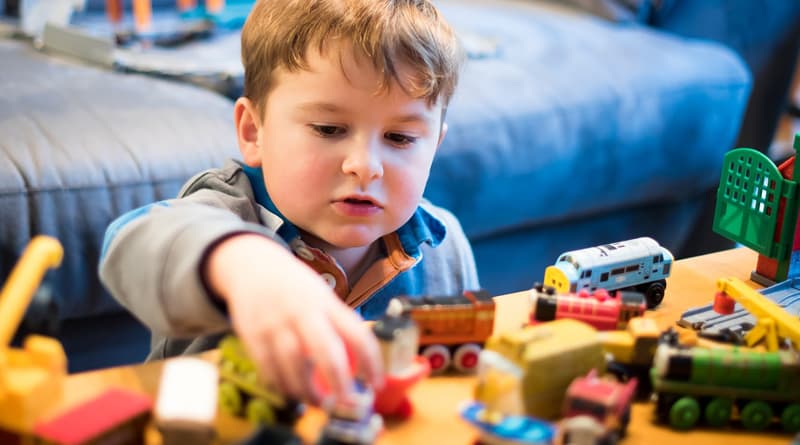
From Bullying Victim to Successful Entrepreneur: A Neurodivergent’s Story of Recovery From Abuse
By Andrew McDonald
The Journey of recovery
A set of keys flew towards my face.
Thrown by a human hand.
I dodged. Getting a ball of metal in the mouth isn’t anybody’s idea of a good day.
From the moment I started working in that toxic environment, attacks like this were a daily event.
Abusive behavior was no stranger to me. I’d faced bullies my whole life. Throughout my schooling. At university. And in several workplaces.
Like so many neurodivergent people, I had a patchy resumé.
Navigating the world of work as a neurodivergent employee isn’t always easy.
Many of us struggle with unemployment and underemployment. And we’re often the victim of toxic environments, where the only option is to leave. For the sake of our mental health.
As those keys hurtled towards my face, two thoughts entered my head.
“Get out of the way… fast…”
and
“This has reached the point of no return. I have to quit.”
Leaving a job without one to go straight into is never easy
We all need an income. So we have a tendency to try to ride out poisonous workplaces longer than we should.
I certainly did that.
I stuck it out for months. The best part of a year.
Scars from the verbal and physical abuse I suffered still haven’t fully healed.
My confidence was destroyed. Not least because my abusers had targeted my neurodiversities as vulnerabilities.
If I could go back and give myself advice, it would be to leave that job sooner than I did.
Much sooner.
When I finally took that decision, I was left with a choice.
Deciding the future
I could get another job as an employee as soon as possible.
Or I could look for an alternative.
The first option didn’t sound too good. This had been my worst experience with bullies. But it certainly wasn’t the first.
The thought of going back to another job terrorized me. Even when I tried to send a resume, I would relive that abuse in my head all over again.
So I chose self-employment.
As a freelance copywriter.
I’d love to say “and Andrew lived happily ever after” at this point. But I’d be lying.
My abusers had destroyed me
Their gaslighting combined with my OCD left me second, third, fourth guessing everything.
Even long after I left the job.
My C-PTSD had been worsened by their threatening behavior.
Being ostracized pushed down hard on the buttons of my rejection sensitive dysphoria.
The little confidence and self-esteem I had, in spite of chronic anxiety and depression?
That well and truly vanished.
Not the ideal starting ground for building a business from scratch.
Following a passion
I’ve always loved writing. Always been a writer.
Copywriting made sense.
I knew it’s where my talents were.
And I believed that would be enough to insure success.
A rude awakening
I quickly used what savings I had to buy copywriting courses. Seduced by their promises of six figures in six months. Making money in my pajamas.
Followed the lessons I learned from studying them.
And then…
Nothing.
I sent hundreds of cold emails looking for work.
Nothing.
I tried networking.
Nothing.
I applied for in house positions.
Nothing.
I tried all of these things over and over again, thinking I had somehow done them wrongly the previous times.
And still…
…nothing.
OK, I did get a few small projects. But nothing that approached making a salary.
My confidence tumbled further and further
The fact I had great success whenever I volunteered to do copywriting for anyone made things even worse.
An LA film production company wanted to add a school to its organization. And my copy raised the necessary capital.
My writing enabled Ireland’s largest pro sports team to grow sales 363.3% inside 30 days.
Charities quickly raised six and even seven figures using my donation letters.
I knew I could do this. That my copywriting worked. The results proved it time and again.
But I still could not get work. No matter what I did.
There had to be another problem.
But what?
An accidental discovery
As if by fate, I stumbled across a summit for neurodiverse business people.
I’m none the wiser as to why I attended. Something caught my eye and I decided to go.
Maybe it was fate but the summit completely changed everything for me.
I heard other neurodivergent entrepreneurs talking about their business struggles.
Describing how traditional outreach methods were damaging for many neurodivergent people.
This isn’t to say neurodivergent people can’t use those strategies and thrive. Many do.
But sending dozens of cold emails without ever hearing anything back is especially tough for someone with rejection sensitivity dysphoria.
Freelancer platforms have the same effect.
In-person networking events quickly burn your energy levels. Especially if you have trauma challenges.
These strategies were developed for confident people. Guys and gals brimming with self-esteem.
Every presentation hit home hard truths
I had been trying to find success using methods not designed for people like me.
I listened on. What I heard changed everything.
I noticed a theme.
All of the speakers used slow-burning, but sustainable, methods for finding clients.
Every single one of them found work by offering value to people. By building communities around their businesses.
There were no stories of overnight success.
But they had all built communities of people interested in them and their businesses.
People who, over time, had learned to know, like and trust the speakers’ personal brands.
All of them used some kind of visibility strategy. LinkedIn, podcast guest appearances, guest blogging. Something that got their name out there.
And all of them created a trail back to their services. Typically in the form of a mailing list.
The speakers used their mailing lists to develop relationships
Not pushing their services. But offering value. Through hints, tips and advice on how their subscribers could grow their own businesses.
Free.
It evidently worked. The speakers were very successful people.
And thinking about it, it’s kind of obvious. They weren’t being icky salespeople. They were building friendships with their audiences.
Logically, who were those audiences going to turn to when they needed help with their businesses? When they were ready to hire somebody to do something for them?
The person randomly cold emailing them?
Or the person who had helped them over weeks, months, maybe even years?
I began doing the same myself. And, although it took time to grow, my own business started to show signs of life.
Recovery achieved
Now I’m in a good place. I have clients. I have a business. And it’s thanks to discovering these strategies.
I’ve learned as much about myself as about my business.
And I pivoted to specialize in helping neurodiverse entrepreneurs.
Why?
Because my journey was a very painful one. It was much longer than it needed to be. And very damaging to my mental health.
I want to help other neurodivergent business owners. Make their paths to success much shorter and less agonizing than mine.
There is light at the end of the tunnel
You have to find strategies that work for you.
Not the one size fits all methods taught by gurus and experts. Who are always focused on neurotypical audiences.
Embrace your neurodiversity. Find not only what’s effective but also what’s sustainable for your own unique personality.
That’s how you’ll grow, recover from trauma, and succeed.

Andrew McDonald is The Neurodivergent Copywriter. He specializes in helping neurodiverse entrepreneurs build and scale their businesses to reach their full potential. He does this by cutting through the noise from neurotypical-focused gurus and experts who deliver advice and tips aimed for NT audiences. There is more than one way to grow a successful business and Andrew will guide you to it. Andrew’s website is www.andrewmcdonald.biz
He also offers a free guide to building a marketing outreach campaign as a neurodiverse entrepreneur at www.andrewmcdonald.biz/book




